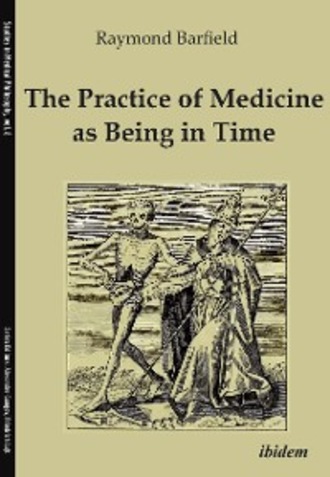
Полная версия
The Practice of Medicine as Being in Time
One day she was lying next to him in the ICU bed. He was miserable. She looked at me and said, “We’re going home.” I was stunned. But I did everything we needed to do to get ready for her to take him home. She and her husband took their little boy home and put him in their bed where they laid together for a few more days. And then he died, surrounded by his family in his own home.
That was when I realized something important. Curing children of cancer was only part of why I wanted to be a pediatric oncologist. What I truly wanted to learn was how to stand by patients and families even when I had no way to cure the cancer. That desire rubbed against the grain of my own formation as a doctor. It took years to learn how to do that part of doctoring well. Those years came with a cost to my time with my family, my health, my happiness, and my ability to be well outside the pediatric oncology unit. I was not equipped to carry what medicine asked me to carry, using only the tools my medical training had given me, but missing what medical training had taken away from me.
Contemporary corporate medicine as an institution creates products to meet consumer demands related to illness, suffering, and death. It sequesters its products in hospitals, and then creates conditions for the sake of profit that interrupt the human dimensions of care to the detriment of both patient and doctor. Doctors rarely go to patients’ houses. They are often given 15-minute time-slots to meet “customers,” with little regard for what the person’s needs might be, nor what the doctor’s needs and responsibilities might be that day. A doctor’s ability to care is diminished when the institution of corporate medicine uses revenue generation in a spiritually toxic environment as the primary measure of value. I have experienced this the majority of my career, but it has become far worse in the past ten years.
The problem is not merely that corporate institutions (and increasingly institutional leaders, who are often figure heads in service to profit-driven boards) do not care about humanity. The problem is that these institutions have no coherent notion of what humanity is, beyond a customer’s capacity to consume. Taken as a group, contemporary leaders in medical institutions focus on finance, risk management, documentation motivated by avoidance of liability, and superficial public relations. But they are not skilled at shaping human institutions in ways that create radical good independent of corporate greed. Despite my respect for people who are willing to engage with the enormous forces shaping medicine, much of the administrative output worsens the agony of the sick and the agony of those who care for the sick. Corporate transformation has destroyed medicine as a communal activity. But leaders seem baffled when doctors encourage their children to avoid medicine as a career, despite the growing physician deficit that is predicted to reach 120,000 by 2030 in the United States.
What are these corporate leaders missing? They fail to recognize that practice of medicine is living philosophy. It is a cauldron where human meaning is revealed, a place where our most important questions emerge. At the bedside of a patient who is suffering or dying, philosophy’s questions suddenly seem urgent. What kind of universe do we live in? Is there anything after death or is it all just a bunch of random atoms bumping together? Should I tell the truth even though I am about to die? How can I know what to do next? How do we know what we know? Is there a God or is there not? Why? Why? Why?
Socrates was right when he said that philosophy is preparation for dying. But for people who have largely ignored philosophical questions during their busy lives, dying is preparation for philosophy. The threshold of death might be the first time they ask some of the questions that are most important for human beings. We are not here very long. The way we choose to use our bodies, minds, and limited time matters. We must not forget how important the theater of medicine is for many crucial parts of the human drama.



